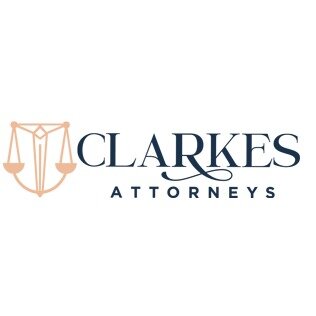Best State, Local, and Municipal Law Lawyers in Malawi
Share your needs with us, get contacted by law firms.
Free. Takes 2 min.
Or refine your search by selecting a city:
List of the best lawyers in Malawi
About State, Local, and Municipal Law in Malawi
State, Local, and Municipal Law in Malawi governs the operations of government at national, regional, and community levels. These laws shape how local authorities operate, covering a wide array of issues such as land use, local governance, public services, infrastructure development, and compliance with national policies. The laws ensure cooperation between different levels of government, define the powers of municipalities, and ensure efficient delivery of services to citizens.
Why You May Need a Lawyer
Legal assistance in the field of State, Local, and Municipal Law in Malawi can be essential in several situations. These include disputes over land use or zoning, contract grievances with local government bodies, for instance, procurement procedures, or when seeking compliance with regulatory standards. Additionally, if you are engaged in a business or development project, a lawyer can help navigate local ordinances and secure the necessary permits and approvals.
Local Laws Overview
Local laws in Malawi vary by region but are typically focused on maintaining public order, health, and safety. Key aspects essential to understanding include the Local Government Act, which outlines the powers and functions of local councils. Furthermore, bylaws may govern local services such as waste management, utilities, urban planning, and licensing, all of which fall under municipal responsibilities.
Frequently Asked Questions
What is the role of local councils in Malawi?
Local councils in Malawi are responsible for delivering essential services such as health, education, water, and sanitation, as well as maintaining local infrastructure and managing community development initiatives.
How are local government officials elected?
Local government officials, including councilors, are elected through municipal elections, allowing citizens to choose representatives who will manage local affairs on their behalf.
What can I do if I disagree with a decision made by the local council?
You have the right to appeal decisions made by the local council. It is advisable to seek legal counsel to ensure your appeal is effectively articulated and presented.
Are there specific zoning laws I should be aware of?
Yes, zoning laws regulate land use in designated areas. They dictate where residential, commercial, industrial, and agricultural activities can occur. Checking with your local council can provide guidance specific to your location.
How do I obtain a business permit in my local area?
Business permits are typically issued by the local council. Application processes may vary, but generally, you will need to submit forms, pay a fee, and comply with zoning laws and safety regulations.
What are municipal bylaws, and how do they affect me?
Municipal bylaws are rules set by local governments to manage community affairs such as noise control, waste management, and local business regulations. Compliance with these bylaws is mandatory, and violations can result in penalties.
Is there a public participation process for local government decisions?
Yes, public participation is encouraged in local government processes, especially for planning and development issues. Public consultations, forums, and meetings are often held to gather community input.
What do I need to know about property taxes?
Property taxes are levied by local governments to fund public services. The rate can depend on your property's value and location. Timely payment is necessary to avoid penalties.
Can I represent myself in disputes involving local law?
While you can represent yourself, having a lawyer knowledgeable in local laws can greatly enhance your ability to effectively handle disputes or negotiations.
What should I do if my development project is halted due to legal issues?
Consult with a lawyer who specializes in local and municipal law. They can help resolve issues with permits, zoning, or compliance, minimizing project delays and potential losses.
Additional Resources
The following resources can offer guidance related to State, Local, and Municipal Law in Malawi:
- Malawi Law Society - Offers legal information and can help connect with qualified lawyers.
- Ministry of Local Government and Rural Development - Provides information on local government policies and services.
- Local councils - Serve as a direct resource for specific local laws, bylaws, and governance issues.
Next Steps
If you require legal assistance in State, Local, and Municipal Law in Malawi, consider the following steps:
- Identify the issue or dispute you are facing concerning local or municipal law.
- Contact a lawyer with expertise in Malawian local, state, and municipal laws to discuss your situation.
- Prepare necessary documentation and information about your case to facilitate a productive consultation.
- Engage with municipal resources and documentation to understand the specific laws and requirements applicable to your case.
Understanding these steps and utilizing the available resources will help you effectively address legal issues in the field of State, Local, and Municipal Law in Malawi.
Lawzana helps you find the best lawyers and law firms in Malawi through a curated and pre-screened list of qualified legal professionals. Our platform offers rankings and detailed profiles of attorneys and law firms, allowing you to compare based on practice areas, including State, Local, and Municipal Law, experience, and client feedback.
Each profile includes a description of the firm's areas of practice, client reviews, team members and partners, year of establishment, spoken languages, office locations, contact information, social media presence, and any published articles or resources. Most firms on our platform speak English and are experienced in both local and international legal matters.
Get a quote from top-rated law firms in Malawi — quickly, securely, and without unnecessary hassle.
Disclaimer:
The information provided on this page is for general informational purposes only and does not constitute legal advice. While we strive to ensure the accuracy and relevance of the content, legal information may change over time, and interpretations of the law can vary. You should always consult with a qualified legal professional for advice specific to your situation.
We disclaim all liability for actions taken or not taken based on the content of this page. If you believe any information is incorrect or outdated, please contact us, and we will review and update it where appropriate.
Browse state, local, and municipal law law firms by city in Malawi
Refine your search by selecting a city.











